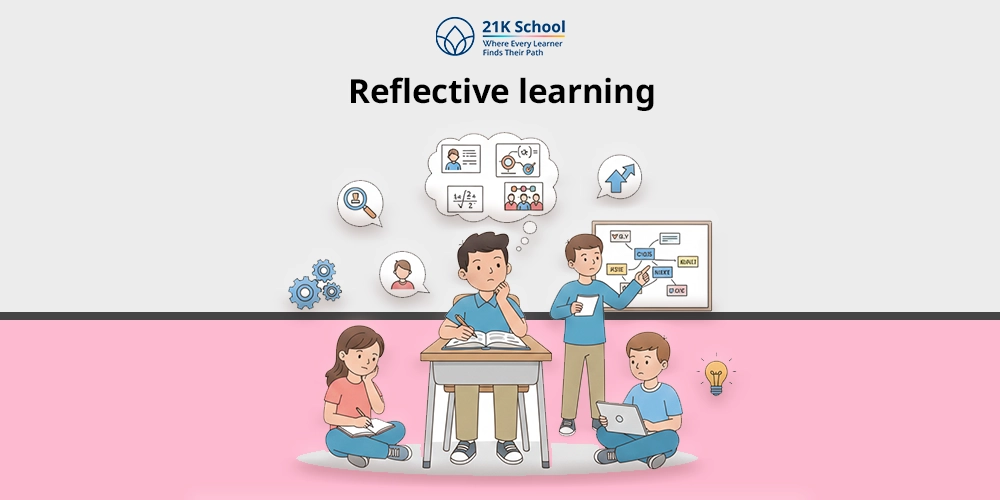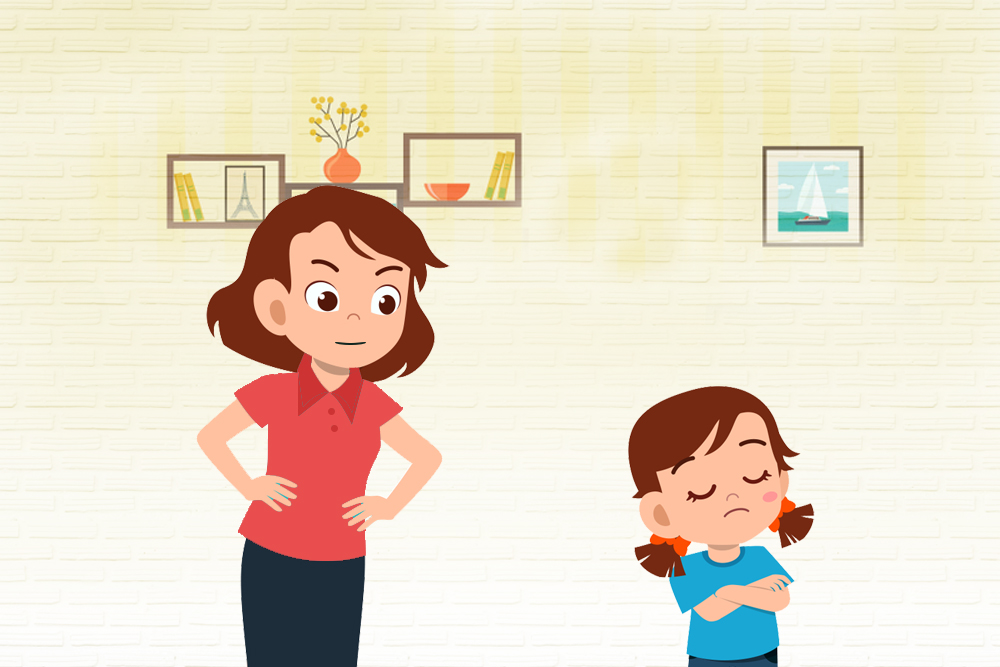
Would you believe it if I say that you can never have disagreements with your kids whom you love the most. No, Right?
Every familial or platonic bond encounters unavoidable conflicts in their nature. Relationships with the best health can still develop conflicts through miscommunication, unmet expectations, and emotional distress.
One such shared bond is parent-child relationship.
The most important factor rests in how we respond to post-conflict situations. Assessing bitterness between two people requires more than fixing the conflict.
It requires rebuilding trust while strengthening their bond as a unit. The following text will investigate conflict-prompted emotional strains, presenting beneficial reconciliation methods meant to restore parental bonds.
Table of Contents
Why Fights Can Take Time—and Energy—to Get Over?
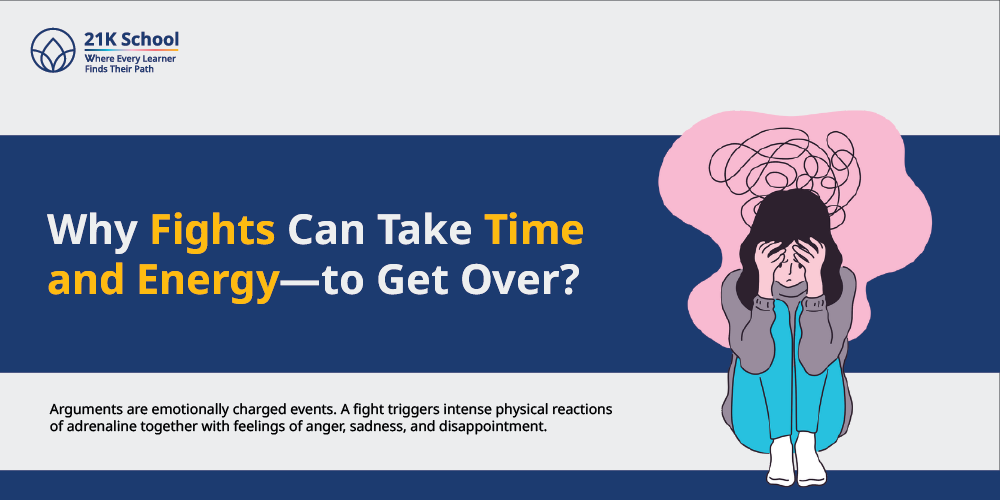
Arguments are emotionally charged events. A fight triggers intense physical reactions of adrenaline together with feelings of anger, sadness, and disappointment. The extreme emotional connection to these conflicts results in complete mental and emotional exhaustion.
The human brain processes conflict dynamics identically to physiological threats. Any dispute with someone we love disrupts our psychological safety as well as our sense of belonging.
The process of reaching calm understanding may require extensive time to accomplish. The emotional walls caused by pride and ego make the path toward reconciliation exceptionally difficult.
Two individuals might need to separate from each other to achieve calmness. The span of separation should never morph into an enduring silence between you and your kids.
Healing following an argument requires a person to make emotional investments and think deeply while developing readiness for vulnerability.
How to Get Over a Fight?
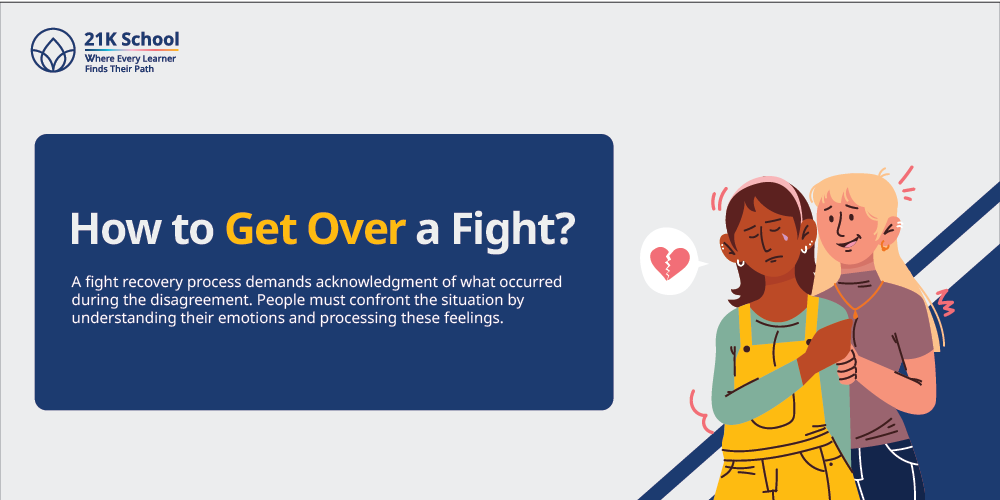
A fight recovery process demands acknowledgment of what occurred during the disagreement. People must confront the situation by understanding their emotions and processing these feelings. Ask yourself several questions before you initiate the approach for reconciliation.
- What triggered the argument?
- At any point throughout the disagreement had I said or done anything that turned out to be hurtful?
- What will make me recover from this state of being?
- Do I understand what feelings my parents/child may currently experience?
The reflective process establishes a condition that future connections should emerge from mature care rather than fear or responsibility. Similar to that, journaling allows you to clear your intentions while it calms emotional confusion.
Ways to Make Up After a Fight
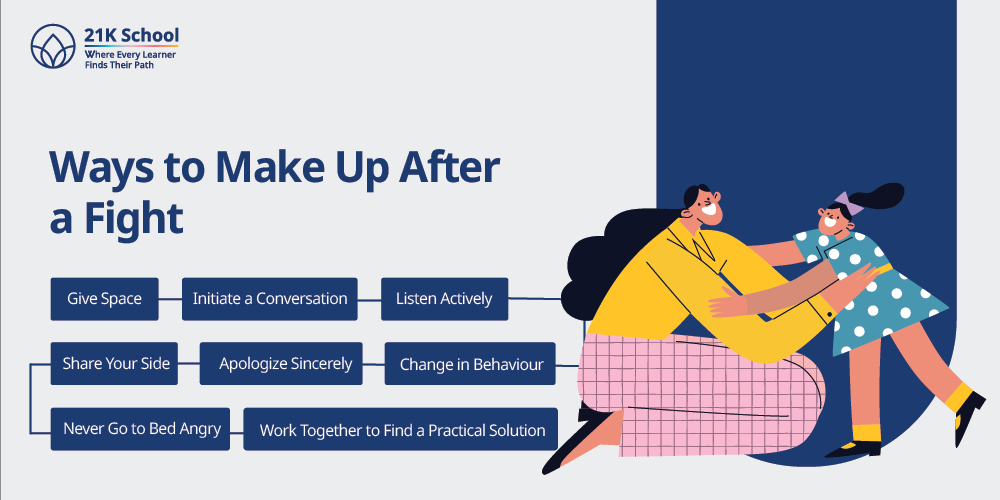
1. Give Space
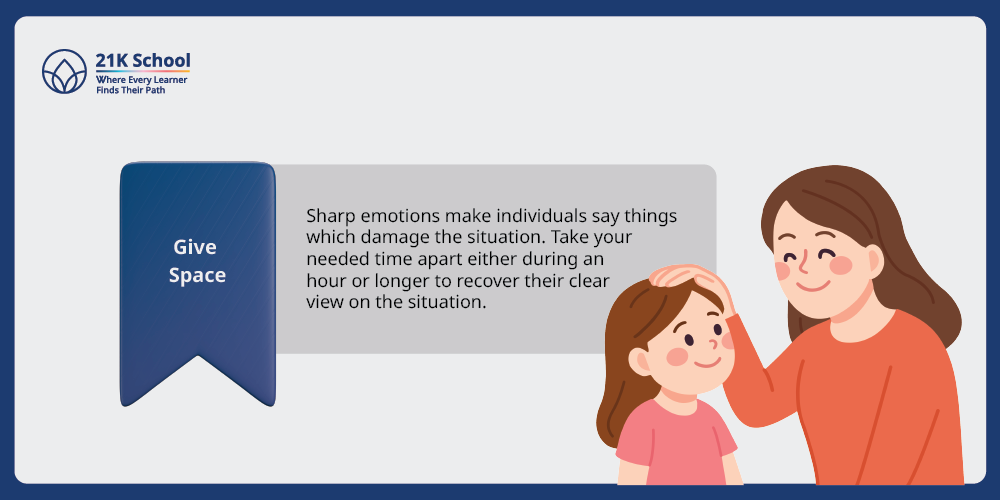
Sharp emotions make individuals say things which damage the situation. Take your needed time apart either during an hour or longer to recover their clear view on the situation.
Cooling off permits emotional balance together with clarity. Therefore it is not the same as avoiding the issue. The physical separation should never turn into emotional remoteness.
2. Initiate a Conversation
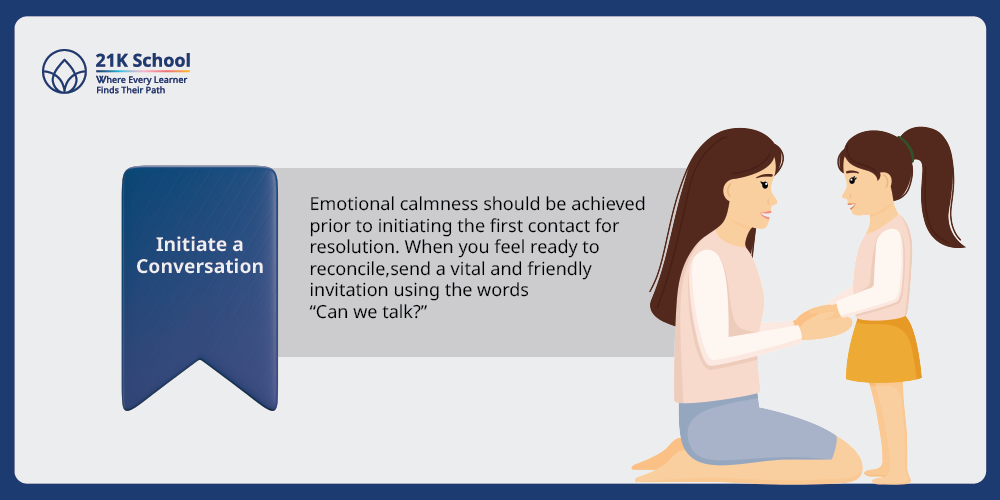
Emotional calmness should be achieved prior to initiating the first contact for resolution. When you feel ready to reconcile, send a vital and friendly invitation using the words “Can we talk?”
This courageous little move gives the potential to start the process of healing. Your attempt to reach out will stay in your kids mind even if they are not yet available to talk right now.
3. Listen Actively
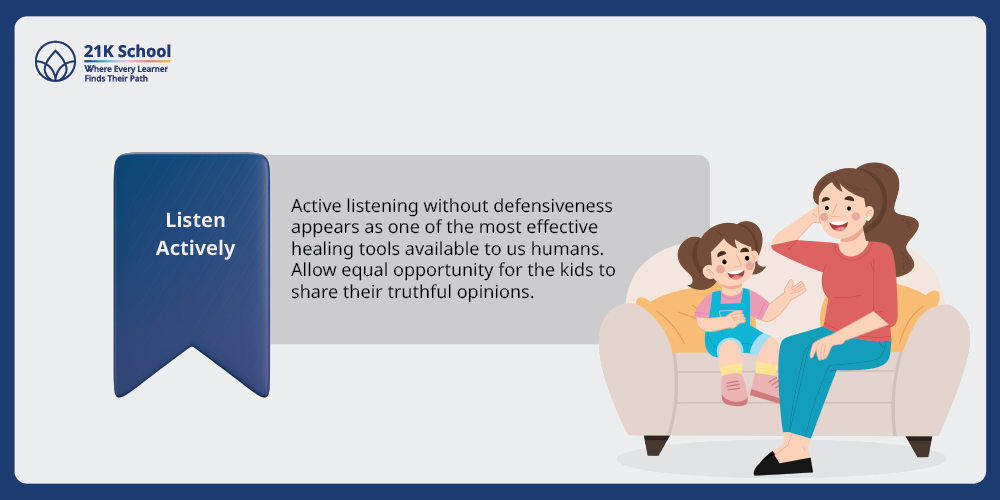
Active listening without defensiveness appears as one of the most effective healing tools available to us humans. Allow equal opportunity for the kids to share their truthful opinions.
Never cut them off while they speak. Also abstain from forming responses during their time to speak. Maintain positive physical signals by nodding. When you listen to what they say and state statements such as “I hear you” or “That makes sense to me”, they feel heard.
Agreeing through active listening allows the listener to validate those emotions since trust-building requires this validation.
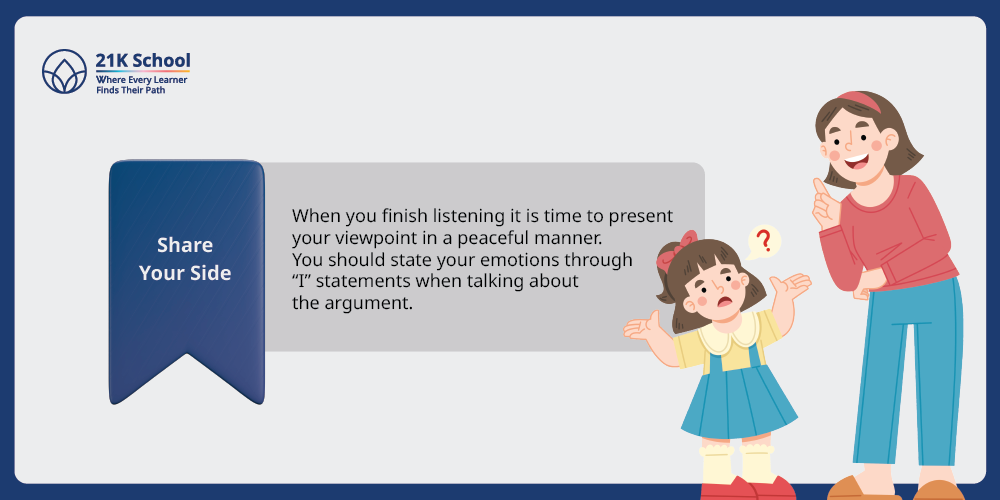
When you finish listening it is time to present your viewpoint in a peaceful manner. You should state your emotions through “I” statements when talking about the argument.
Resist from losing your calm and have a lack of words when expressing your frustration of being disobeyed. It is better to say “When you did not follow my instructions I felt completely concerned about you.”
Through this approach defense mechanisms are minimized so real dialogue can develop.
5. Apologize Sincerely
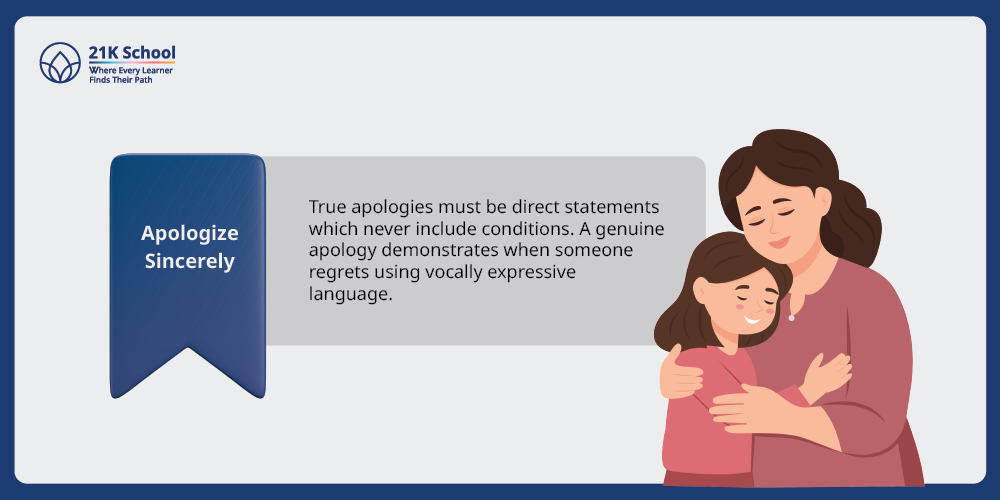
True apologies must be direct statements which never include conditions. A genuine apology demonstrates when someone regrets using vocally expressive language.
You can do this by saying that the situation overwhelmed me, even though my reaction was improper. Take responsibility without making excuses.
An apology without honesty involves repeating a problem’s existing perception instead of actually accepting responsibility.
6. Work Together to Find a Practical Solution
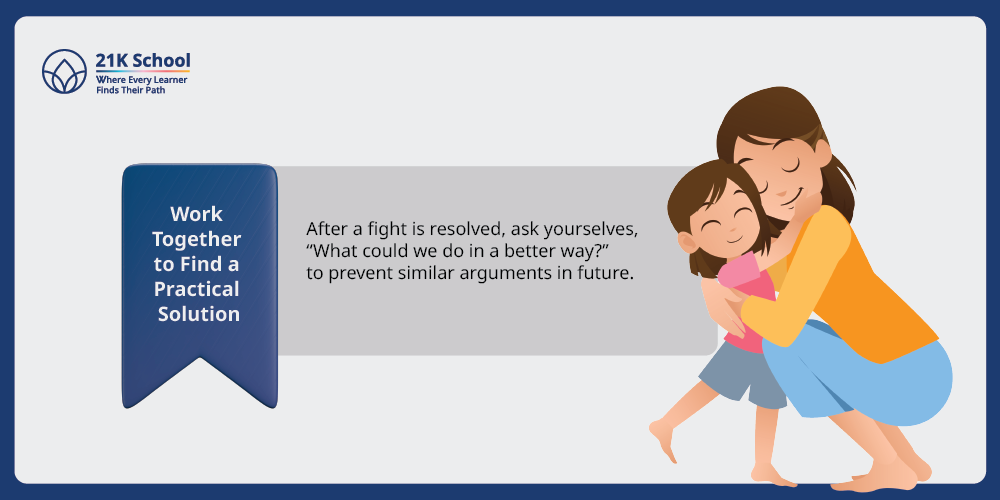
Working as a team can do wonders when approaching a resolution for misunderstandings. After a fight is resolved, ask yourselves, “What could we do in a better way?” to prevent similar arguments in future.
You can recognize if it was the strictness, lesser firm boundaries, or something else that caused the conflict. This helps you build a base for mutual respect and emotional safety between parents and children.
7. Change in Behaviour
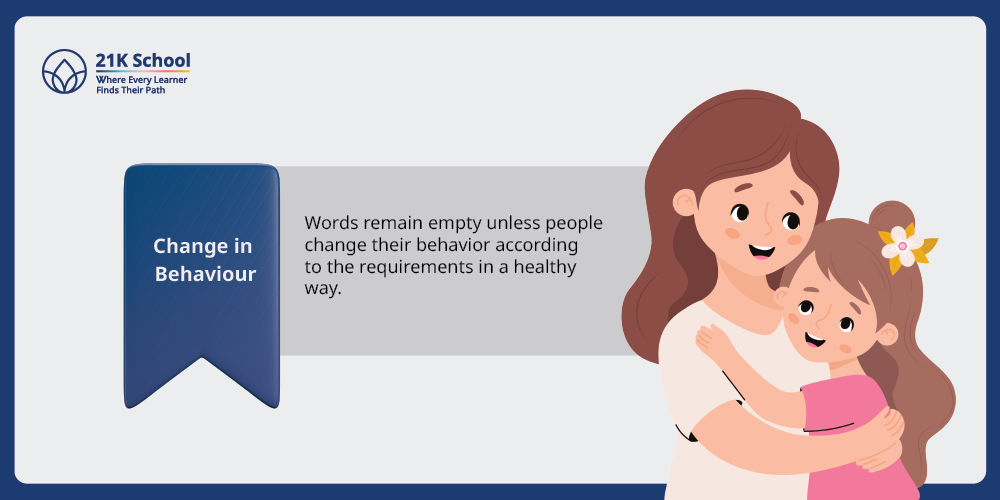
Words remain empty unless people change their behavior according to the requirements in a healthy way.
Twice-to-three times repetition of similar disputes should trigger a personal examination of your behavior patterns. Are you reactive? Dismissive? Passive-aggressive? Find if you are dumping your emotions on your kids.
True dedication to a relationship emerges through steady alterations in habits. This can include demonstrating patience, speaking up early and defining definite limitations.
8. Never Go to Bed Angry
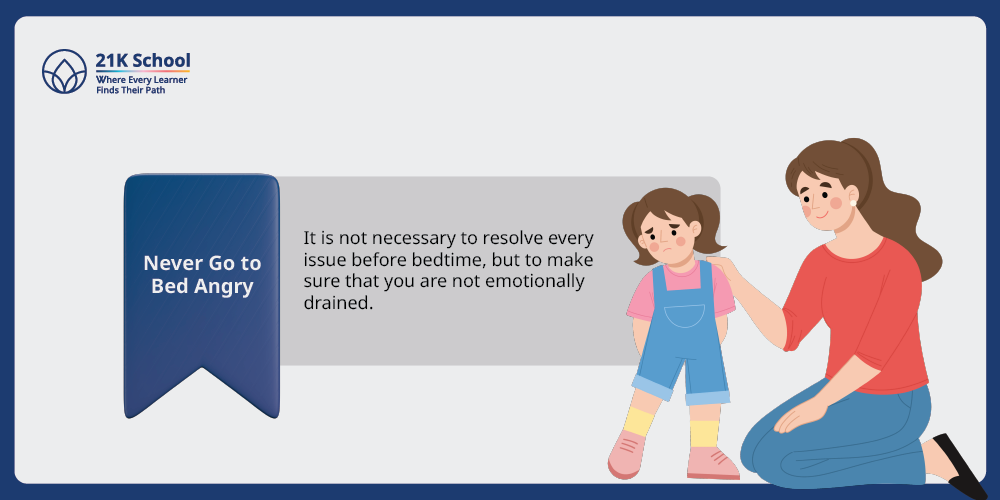
It is not necessary to resolve every issue before bedtime, but to make sure that you are not emotionally drained. The core message of this advice focuses on achieving complete resolution with your kids emotionally.
State phrases like “I’m still hurt, but we will discuss it tomorrow when we have time” and “I love you”. This demonstrates you want to stay bound emotionally even when disagreements remain unresolved.
Unexpressed anger throughout the night will commonly transform into greater resentment.
How to Make Up With Your Daughter After an Argument?
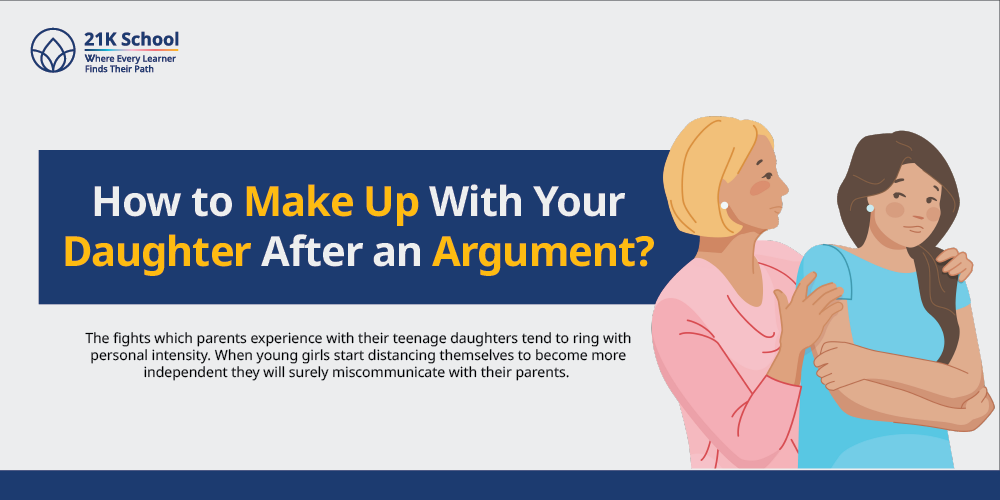
The fights which parents experience with their teenage daughters tend to ring with personal intensity. When young girls start distancing themselves to become more independent they will surely miscommunicate with their parents. To make up:
- Start your approach with gentleness by knocking on her door before asking if she is ready to talk.
- I realize my comments hurt you so I seek to understand what caused this pain.
- Lectures should be avoided at this moment since advice and rules have no place.
- Your love remains unconditional as you reassume her through verbal declarations of affection even when you are at odds.
The main objective during such conversations remains the care of your relationship rather than the pursuit of winning the discussion. Recovery of trust takes time, especially when fights include hurtful words or emotional cutoffs. Yet consistent communication with sincerity enables healing between parents and their daughters.
How to Make Up With Your Mom After an Argument?
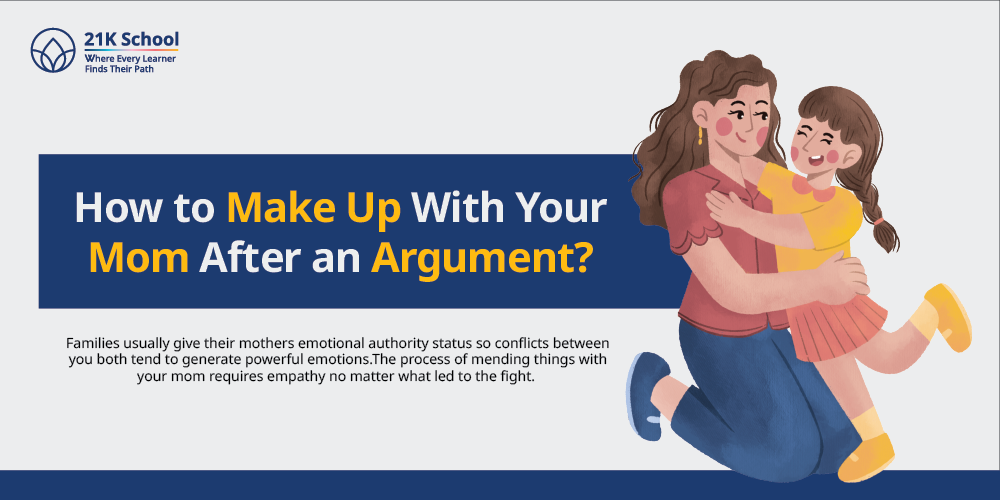
Families usually give their mothers emotional authority status so conflicts between you both tend to generate powerful emotions. The process of mending things with your mom requires empathy no matter what led to the fight.
Moms tend to hide their emotions because preserving harmony matters to them.
- You can begin the reconciliation process with “Mom, I’ve been thinking about our recent fight and I really miss you.”
- You should show her understanding by acknowledging that she felt hurt.
- Your main goal should be reconciliation so stay away from defensive or sarcastic emotions.
- Establish a moment of calmness through shared eating, activities, or memories that hold special value to both of you.
Your mature approach to contact will start a process of healing in spite of her initial resistance. Moms acknowledge attempted expression of closeness although they may take some time to show gratitude.
Conclusion
Dirty arguments are bound to happen but healed relationships remain intact. After conflicts it is crucial to see what develops next in the relationship.
While making up cannot operate through a universal method. Putting love above ego makes the process possible but requires mastery of patience and showing vulnerability.
You need to listen deeply then speak honestly. Apologizing sincerely followed by making meaningful changes in your relationships with your loved ones will deepen the relationship.
Resistance during conflict is rewarding when correctly handled because it strengthens relationships to surpass their initial state.
To make peace with someone does not indicate weakness in any way. The action stands among the most powerful choices we make as emotionally intelligent human beings.

